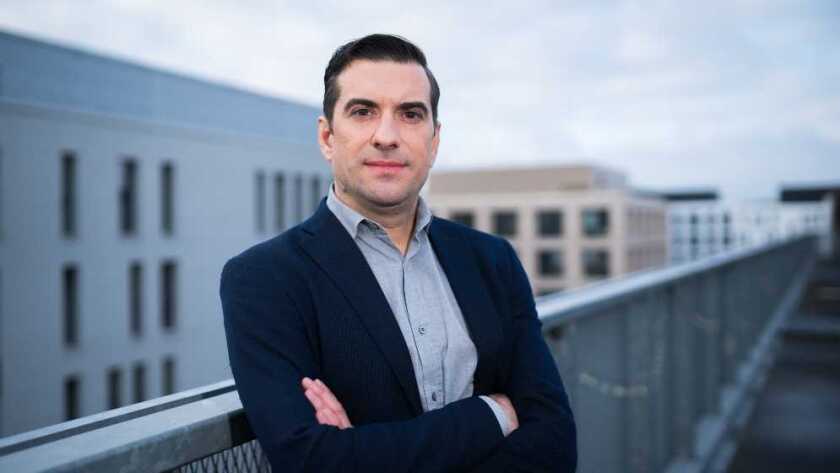The German company says it wants to move from those first three countries by the end of 2022 to nine, including Cameroon, Congo, the Central African Republic, Chad, Niger and Sudan.
Ivo Ivanov (pictured), CEO of DE-CIX International, said: “The hundreds of millions of users in Africa deserve digital services of state-of-the-art quality. This requires the best local infrastructure possible.”
DE-CIX has made this strategy part of its DE-CIX as a Service (DaaS) partner model, with separate partners in the three initial countries to set up local internet exchanges.
The Africa Congo Internet Exchange (ACIX) will operate in Kinshasa, DRC, with local ISP and hosting provider United.
The Africa Cloud Interconnection Exchange (AF-CIX) will operate at the Rack Centre data centre in Lagos, Nigeria.
In Libya, DE-CIX is working with the Libyan International Telecom Company (LITC) in Tripoli.
“All three new African platforms are aimed to be ready for service by the end of 2022, delivering international capabilities and next-generation interconnection services, including cloud connectivity, to the respective markets,” says DE-CIX.
Ivanov said: “DE-CIX is delighted to contribute to this to serve the broader need for interconnection, with modern interconnection services designed for businesses such as cloud connectivity and direct access to cloud-based applications. It’s time for Digital Africa.”
DE-CIX wants the three new platforms to become what it calls “the African crossroads for intra and inter-continental traffic flows”, and they “will initially have a reach spanning nine countries in Africa”.
The three partners will also extend the coverage of their platforms to further territories using their own infrastructure, says DE-CIX.
“The DE-CIX-as-a-Service program offers a turnkey solution for the operation of an interconnection fabric and the development of a connectivity ecosystem for data centre operators or other third parties. DE-CIX is planning to open more locations in various regions and metro markets on the African continent in 2022 and beyond.”
Ivanov said: “We will start with three complementary markets: Nigeria is a strong economic motor that contributes a huge amount of African digital content; the DRC has an excellent geographical position to bridge east and west in the African equatorial corridor; Libya’s unique geographical location, being at the heart of the northern coast of Africa and facing Europe, offers an alternate route for traffic and low-latency connectivity between Africa and Europe.”
The company noted that, with six international submarine cables landing in the metro area and two more expected by 2023, Nigeria is well positioned on the west coast of Africa, able to offer a low-latency gateway to Europe through Lisbon.
In DRC, the company said that Kinshasa “is strategically located between the two most densely populated regions of the African continent. Forming an interconnection bridge between the neighbouring countries from the Atlantic on the west to the Indian Ocean on the east, the new interconnection platform will, over time, create a connectivity corridor across equatorial Africa, with Kinshasa as the hub where networks can exchange data and house content at a significantly reduced latency to users.”
And, it added, Libya has built “a strong international connectivity footprint, with three different submarine cables landing on its shores and one planned for 2024. These link the east and west Libyan coast with Europe and Asia, offering the shortest path to Africa.”






